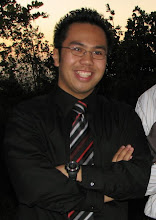4.09.2011
Mile 18039: Candid Camera
I LOVE SEEING LESSONS COME
FULL-CIRCLE.
This week, I had an opportunity to guide the camera behind a laparascopic procedure. I enjoyed being behind it for once, pulling in and swiping across the abdomen to make sure the surgeon covered all the ground he needed to cover. When I was in Dominica, I had written about how surgeons and their assistants start to have this way of "hidden" communication. I've worked with one surgeon for the past week, and I'll admit the first time I assisted, it was like trying to teach a kid to bike without training wheels. Fortunately, I had a patient attending, so by the second time around, I started to get some of the gist of what the surgeon was going for.
For those of you not familiar with laparoscopy, the jist of it basically comes down to a fiber-optic camera (don't think of a lens-faced camera, but a camera in the a shape of a long-thin pole). Many surgical procedures in the abdomen in the past used to be conducted by cutting through the front part of the stomach wall, and when the surgery was over, a big scar would be left across the abdomen. Things are different with laparoscopy, a couple of port holes for instruments and the camera itself are poked in, leaving only a few small scars after surgery. It's much more cosmetically beneficial.
And here I was, keeping my eye on the plasma screens, on the scope, being the surgeon's eyes, and kinda like his brain (most of the time). And soon, the surgery was over. I was soon assisting in my first sutures, and I'll admit that its gonna take practice to get the art down of beating the "anesthesia clock." Basically, suturing up surgical openings is harder when the patient starts to breathe on their own and get active as they wake up from being asleep during the surgery. However, the thrill of jumping in to try things out is definitely there.
And, although my primary intention is still to go into primary care, I'll admit, Surgery so far has been a blast.
4.06.2011
Mile 17935: Surgical Adventures of Dr. Shortcoat
 Above: I was living "on the air" in Cincinnati. At the Cleopatra exhibit. March 2011.
Above: I was living "on the air" in Cincinnati. At the Cleopatra exhibit. March 2011.SURGERY IS AN EXPERIENCE THAT CAN BE LEARNED
THROUGH EXPERIENCES.
On Monday, I began my 12 week adventure into Surgery. Operating room observation, follow-ups on patients on the floors, going to clinics to do more follow-ups and consults, and the list keeps going, but its something I'm looking forward to. I had talked about the operating room in Dominica when I first came onto the island, but I'm glad to be finally writing about it again.
This week, I experienced the longest of surgeries (at least according to one of the nurses) that I'll be experiencing. It was the Laparascopic Nissen Fundoplication procedure (basically wrapping a portion of the stomach around the esophagus as one of the treatments for GERD - layman, acid reflux - not responding to medication). Five hours standing, and assisting by basically handling instruments in an upright position for multiple hours. I'm a bit sore, admittedly, after holding up some of the instruments after a while. However, it felt good to scrub in and afterwards getting my first shot of real stitching after the surgery was over. I used to complain about my ability to scrub into a gown, but with this rotation, I feel I'm getting better.
The operation was rather interesting, as at a point during the operation, there were multiple plasma screens that I could look at, with one camera looking down the esophagus from the mouth and the laparascopic scope looking at the stomach from inside the abdomen. I'll have to say that doing surgery is sometimes like a concert... the lights are on, you have the best view when scrubbed in, and your attention is definitely on the person in the spotlight. Now I know where the term "Operating Theater" came from in Dominica.
My first real scrubbed in surgery was quite an experience. I'm looking forward to the next 12 weeks not just to experience what the profession can offer, but also to learn a few tricks from surgeons that may be applicable to my life in primary care (we still have to do procedures!). Over the next few weeks, I may be also reflecting a little bit more on my last roadtrip... as much as I'm missed Chicago, I'm now missing the road.
Dr. Shortcoat was a name I had earned from one of the nurses when I was in Decatur. More about how I got the name later.
My first real scrubbed in surgery was quite an experience. I'm looking forward to the next 12 weeks not just to experience what the profession can offer, but also to learn a few tricks from surgeons that may be applicable to my life in primary care (we still have to do procedures!). Over the next few weeks, I may be also reflecting a little bit more on my last roadtrip... as much as I'm missed Chicago, I'm now missing the road.
Dr. Shortcoat was a name I had earned from one of the nurses when I was in Decatur. More about how I got the name later.
Subscribe to:
Comments (Atom)


